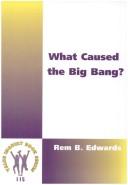| Listing 1 - 4 of 4 |
Sort by
|
Book
ISBN: 3631788916 3631780443 9783631788912 Year: 2020 Publisher: Bern Peter Lang International Academic Publishing Group
Abstract | Keywords | Export | Availability | Bookmark
 Loading...
Loading...Choose an application
- Reference Manager
- EndNote
- RefWorks (Direct export to RefWorks)
The topic of this book is practical knowledge in early modern Europe, interpreted widely as recipes containing art procedures or medical panaceas between 1400 and 1700. In this book, the 1) origin or creation, 2) transmission or dissemination, and 3) use or consumption are key subjects for understanding the place of practical knowledge in early modern European society. After a historiographical and theoretical approach, this book applies Deleuze and Guattari’s rhizome metaphor to art technological literature. The first part ends with a study about medical practitioners and mediators who disseminate practical knowledge through the printing press. The second part of the book is entirely dedicated to the bookletA Very Proper Treatise (1573), using a microhistory approach to study it.
Creation. --- Biblical cosmogony --- Cosmogony --- Natural theology --- Teleology --- Beginning --- Biblical cosmology --- Creation windows --- Creationism --- Evolution --- Art technology --- Book history --- Contextualizing --- Early --- Europe --- Food history --- Knowledge --- Leemans --- Medical practitioners --- Modern --- Practical --- Recipe books --- Rhizomatic transmission --- 1450-1600 --- Renaissance Period --- 1450-1600.
Book
ISBN: 1608337944 9781608337941 9781626983304 1626983305 Year: 2019 Publisher: Maryknoll, NY : Orbis Books,
Abstract | Keywords | Export | Availability | Bookmark
 Loading...
Loading...Choose an application
- Reference Manager
- EndNote
- RefWorks (Direct export to RefWorks)
"Based on the Duffy Lectures, a yearly lecture series at Boston College, this book explores the theme of "Deep Incarnation" as a way of making connections between incarnation and the whole of creation, including the costs built into our evolutionary world. The key question of "Deep Incarnation," for Edwards, is: "What relationship is there between the wider natural world, the world of galaxies and stars, mountains and seas, bacteria, plants and animals, and the life, death, and resurrection of Jesus Christ?" To approach this theme, Edwards draws upon the work of Niels Gregersen (the "father of Deep Incarnation"), Elizabeth Johnson, and others. He then engages with Irenaeus, Athanius, and Karl Rahner as three great witnesses to a deep view of incarnation, and concludes with his own constructive approach to the book's theme."
Incarnation --- Creation. --- Salvation --- History of doctrines. --- Christianity. --- Creation --- Soteriology --- Economy of God --- Biblical cosmogony --- Cosmogony --- Natural theology --- Teleology --- Beginning --- Biblical cosmology --- Creation windows --- Creationism --- Evolution --- History of doctrines --- Christianity --- 241.65*7 --- 241.65*7 Theologische ethiek: natuur; ecologie --- Theologische ethiek: natuur; ecologie

ISBN: 9004496033 9042014075 Year: 2001 Publisher: Boston : BRILL,
Abstract | Keywords | Export | Availability | Bookmark
 Loading...
Loading...Choose an application
- Reference Manager
- EndNote
- RefWorks (Direct export to RefWorks)
This book critically explores answers to the big question, What produced our universe around fifteen billion years ago in a Big Bang? It critiques contemporary atheistic cosmologies, including Steady State, Oscillationism, Big Fizz, Big Divide, and Big Accident, that affirm the eternity and self-sufficiency of the universe without God. This study defends and revises Process Theology and arguments for God's existence from the universe's life-supporting order and contingent existence.
Cosmology. --- Big bang theory. --- Creation. --- Religion and science. --- Christianity and science --- Geology --- Geology and religion --- Science --- Science and religion --- Biblical cosmogony --- Cosmogony --- Natural theology --- Teleology --- Beginning --- Biblical cosmology --- Creation windows --- Creationism --- Evolution --- Big bang cosmology --- Superdense theory --- Cosmology --- Expanding universe --- Astronomy --- Deism --- Metaphysics --- Religious aspects --- Philosophy of religion --- Philosophy --- Philosophy of Religion --- Philosophy of Science
Book
ISBN: 0295745703 9780295745701 9780295745688 0295745681 9780295745695 029574569X Year: 2019 Publisher: University of Washington Press
Abstract | Keywords | Export | Availability | Bookmark
 Loading...
Loading...Choose an application
- Reference Manager
- EndNote
- RefWorks (Direct export to RefWorks)
"The Nuosu people, who were once overlords of vast tracts of farmland and forest in the uplands of southern Sichuan and neighboring provinces, are the largest division of the Yi ethnic group in southwest China. Their creation epic plots the origins of the cosmos, the sky and earth, and the living beings of land and water. This translation is a rare example in English of indigenous ethnic literature from China. Transmitted in oral and written forms for centuries among the Nuosu, The Book of Origins is performed by bimo priests and other tradition-bearers. Poetic in form, the narrative provides insights into how a clan- and caste-based society organizes itself, dictates ethics, relates to other ethnic groups, and adapts to a harsh environment. A comprehensive introduction to the translation describes the land and people, summarizes the work's themes, and discusses the significance of The Book of Origins for the understanding of folk epics, ethnoecology, and ethnic relations"--
Folk poetry, Yi --- Yi (Chinese people) --- Mythology, Chinese --- Creation --- S11/1215 --- S15/0750 --- S16/0195 --- Biblical cosmogony --- Cosmogony --- Natural theology --- Teleology --- Beginning --- Biblical cosmology --- Creation windows --- Creationism --- Evolution --- Chinese mythology --- Lolo (Chinese people) --- Lolos --- Ethnology --- Tibeto-Burman peoples --- Yi folk poetry --- Yi poetry --- Mythology --- China: Social sciences--Works on national minorities and special groups: since 1949 --- China: Language--Dialects: general and others --- China: Literature and theatrical art--Thematic studies --- Mythology, Chinese. --- Folk poetry, Yi. --- RELIGION / Comparative Religion --- BODY, MIND & SPIRIT / Spirituality / Paganism & Neo-Paganism --- Mythology. --- Southwest China. --- Southwest China --- Anthologies: general
| Listing 1 - 4 of 4 |
Sort by
|

 Search
Search Feedback
Feedback About UniCat
About UniCat  Help
Help News
News